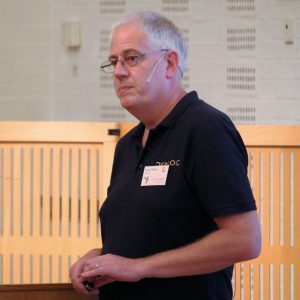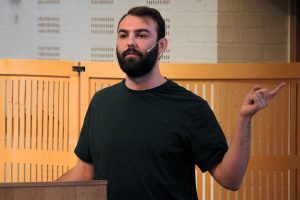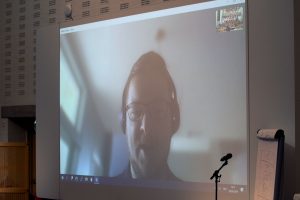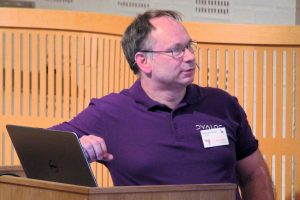
Richard Smith asks and answers: Is it Christmas Yet?
Depending on which day you decide to watch this recording, you may get a different answer from the one that Richard did as he answered his own question (“Is It Christmas Yet?”) in the first minute of his presentation. Of course, the true purpose of the talk was to show off a potential new system function for converting between a variety of time encodings. Not just the obvious ones like the 7-element ⎕TS format timestamp and the Dyalog Date Number, which is the number of days since the 31st of December 1899, but also a variety of Julian Dates, ⎕FRDCI style timestamps, UNIX time, Excel datetimes, Stata, R and SPSS dates and more – a total of more than 20 different time formats. Richard also shows how version 18.0 will allow you to determine the time in different time zones, and ends with formatting the current time in Helsinki – in Welsh.
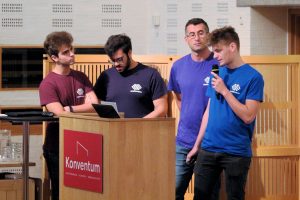
Roberto and students from Liceo Scientifico GB Grassi Saronno
Inspired by Tetsuya Miyamoto, the inventor of the KenKen and other puzzles, Roberto Minervini avoids lecturing and prefers to present students with puzzles that they will be motivated to solve, learning new skills including mathematics and APL in the process. Pietro, Gabriele, Alessandro had their first exposure to APL in Roberto’s class at the at the Liceo Scientifico GB Grassi Saronno near Milan in Italy. Together with Roberto, they have created “MathMaze”, a platform for hosting real-time puzzle tournaments.
In this talk, they explain the unique scoring algorithm and the difficulty of creating puzzles that don’t make it clear whether you should solve them by thinking about them, by making drawings, or using the computer. A really good puzzle will requires a combination of techniques. As Alessandro explains, APL makes me think about the real mathematics behind a puzzle before I start writing the code.
Summary of this week’s videos:
- D08: Is it Christmas Yet? (Richard Smith)
- U11: Why Teach APL? The Art of Teaching Without Teaching (Roberto Minervini with Pietro Pio Palumbo, Gabriele Meroni and Alessandro Iaselli, Liceo Scientifico GB Grassi Saronno)
(Video releases will resume in January 2020)


 Follow
Follow
